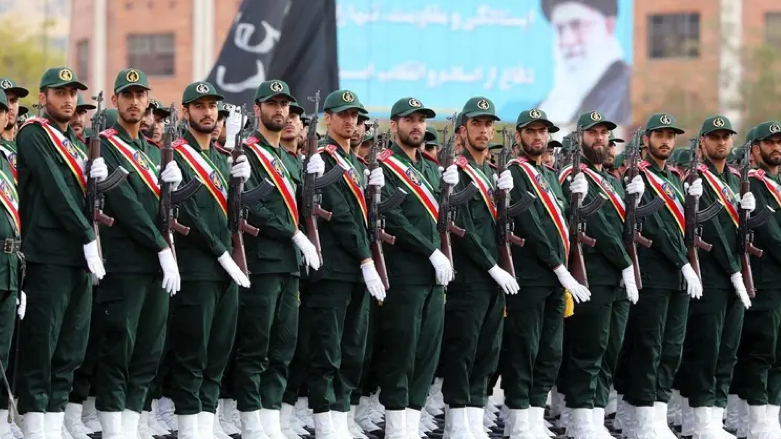US announces new sanctions on Iran, in concert with European allies
“Today, we are united with our allies and partners in the need to confront Iran’s leadership for its human rights abuses and destabilizing activities, which should alarm the entire world,” Price said.

WASHINGTON DC, United States (Kurdistan 24) – On Monday, the US announced another set of sanctions on Iran for its human rights abuses. The US measure followed similar steps taken by Britain and the European Union (EU) earlier that day.
Read More: Polish minister of Foreign Affairs comments on new sanctions against Iran
Altogether, the new measures mark a decisive turn in policy toward Tehran, significantly different from that pursued by the Western powers just a year ago, when their focus in dealing with Iran was to renew the 2015 Iranian nuclear accord, formally known as the Joint Comprehensive Plan of Action (JCPOA).
To some extent, the tougher western policy towards Iran works to the Kurds’ advantage. While the US and EU were focused on restoring the JCPOA, they tended to downplay the significance of other malign Iranian activities, including attacks by Iran or its proxies on the Kurdistan Region.
Now that has changed. In describing the new sanctions on Monday, State Department Spokesperson Ned Price essentially dismissed any prospect of renewing the JCPOA, at least in the immediate future.
The shift in the attitude of the Western powers has been driven by two factors:
(1) the ongoing protests in Iran, precipitated by the Sept. 16 death of the young Kurdish woman, Zhina (Mahsa) Amini, while in the custody of Tehran’s “morality police,” and
(2) Tehran’s supply of weapons, above all, drones, to Russia for use in its war of aggression against Ukraine.
Indeed, addressing journalists before the EU Foreign Ministers meeting on Monday, which established the new EU sanctions, its top diplomat, Josep Borrell, explained that the “most important” issue on the agenda “is going to be the war in Ukraine.”
Borrell also confirmed that the new sanctions on Iran would be discussed. Surprisingly, however, ISIS and its terrorist activities would not be on the agenda of Monday’s meeting, Borrell said. His remarks underscored the extent to which Iran’s malign activities, broadly understood, have become an important issue for the EU, surpassing, at least for now, the threat posed by ISIS.
New US Sanctions on IRGC for Human Rights Abuses
“The United States took further action today, concurrently with the United Kingdom and the European Union to promote accountability for the Iranian regime’s human rights abuses,” Price announced as he began Monday’s briefing.
“Today, we are united with our allies and partners to confront Iran’s leadership for its human rights abuses and destabilizing activities, which should alarm the entire world,” he continued.
Monday’s sanctions mark the ninth round of such measures targeting Iran for serious human rights abuses, since the protests began last September.
The new sanctions cover ten senior officials, as well as one entity—the Islamic Revolutionary Guard Corps (IRGC) Cooperative Foundation (Bonyad-e Ta’avon.)
Created in 1986, during the Iran-Iraq war, which lasted eight long years (1980-1988), the foundation’s original mission was to provide IRGC members with loans and mortgages, as well as land and construction material. Thus, it was created to provide incentives for fighting the brutal, grinding war.
However, the foundation has changed considerably in the nearly four decades since. It has become, in the words of the U.S. Treasury Department, “a slush fund for the IRGC’s personnel and business interests.” Three of the ten individuals sanctioned on Monday are board members of the foundation.
Naser Rashedi, Deputy Minister for Intelligence, is the most senior official sanctioned on Monday. Previous sanctions have targeted the Intelligence Minister himself, the Prosecutor General, the Minister of Interior, and the Minister of Information and Communications Technology, the last for cutting off the internet to counter the protests.
In addition, four IRGC commanders were sanctioned. They include Mohammad Nazar Azimi, commander of the IRGC’s Najaf Ashraf West Headquarters, which is responsible for the western provinces of Kermanshah, Hamadan, and Ilam. His deputy, Kourosh Asiabani, commander of the Shahid Kazemi Headquarters, oversees the IRGC in Kermanshah province, which has a large Kurdish population.
“IRGC forces under the command of Azimi and Asiabani have committed some of the worst acts of violence by Iranian security forces” since the protests began last September, the Treasury Department said.
It cited one example. In Javanrud, a small town in Kermanshah province, “IRGC troops used live ammunition, including semi-heavy machine guns, to quell protests, killing and wounding dozens.”
“The IRGC shelled vehicles attempting to deliver blood bags to those wounded in local hospitals, preventing their delivery,” it continued. “Witnesses have linked Asiabani personally to these abuses.”
In addition, the IRGC Commander of Isfahan province, Mojtaba Fada, and the commander of the 17th IRGC Division in the shrine city of Qom, Hossein Tanavar, werealso designated.